
In the face of the new challenges posed by the COVID-19 pandemic of the century and the new task of implementing the China's 2020 health, the Office of International Affairs and the School of Public Health further implemented the spirit of the national education opening-up document in the new era and the specific requirements of the 14th Five-Year international exchange plan of Huazhong University of Science and Technology. In the summer of this year, they jointly held the “2022 Tongji Summer School” of Huazhong University of Science and Technology with Tongji Medical College.
The courses offered by the “2022 Tongji Summer School” involve many disciplines such as epidemiology, clinical medicine, nutrition, reproductive health, medical management, and traditional Chinese medicine. They integrate the teaching and research resources of world-class universities and provide interdisciplinary learning and cross-cultural communication platforms for medical students at home and abroad.
At the end of July 2022, the “2022 Tongji Summer School” “ Nutrition Epidemiology: Methods and Practice” course presentation at the School of Public Health was successfully held online and offline. This course is taught by Yuan Changzheng, Research Fellow of the School of Public Health, Zhejiang University, and Assistant Professor of Chen Zengxi School of Public Health, Harvard University.
The students participating in the course were divided into four groups, and the classroom results were reported on the topics of “Randomized Controlled Trial on the Effect of Synbiotics on Immune Function of Healthy People”, “Association of Vitamin D with Mortality Risk among Individuals with Diabetes: a Prospective Study”, “ Association between Red and Processed Meat Intake and the Risk of Breast Cancer”, “Metabolomic Signature of Long Term Coffee Consumption and Risk of Type 2 Diabetes in Women ”.
Group 1 Randomized Controlled Trial on the Effect of Synbiotics on Immune Function of Healthy People
Nutritional epidemiology suggests that we can explore the relationship between nutrition-related dietary factors and disease outcomes through cross-sectional studies, cohort studies, field trials, and other research methods. This group intends to adopt the field test as our research method, take the common probiotics in life as the starting point, select a probiotic mixed preparation-synbiotics as our intervention measure, and prospectively explore the effect of synbiotics on the immune function of healthy people, hoping to provide a theoretical basis for the reasonable supplement of synbiotics.
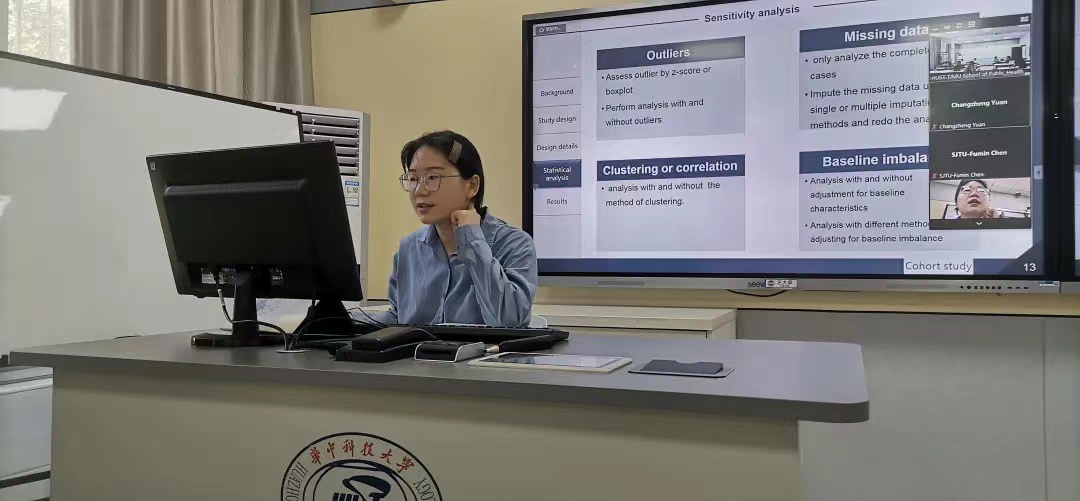
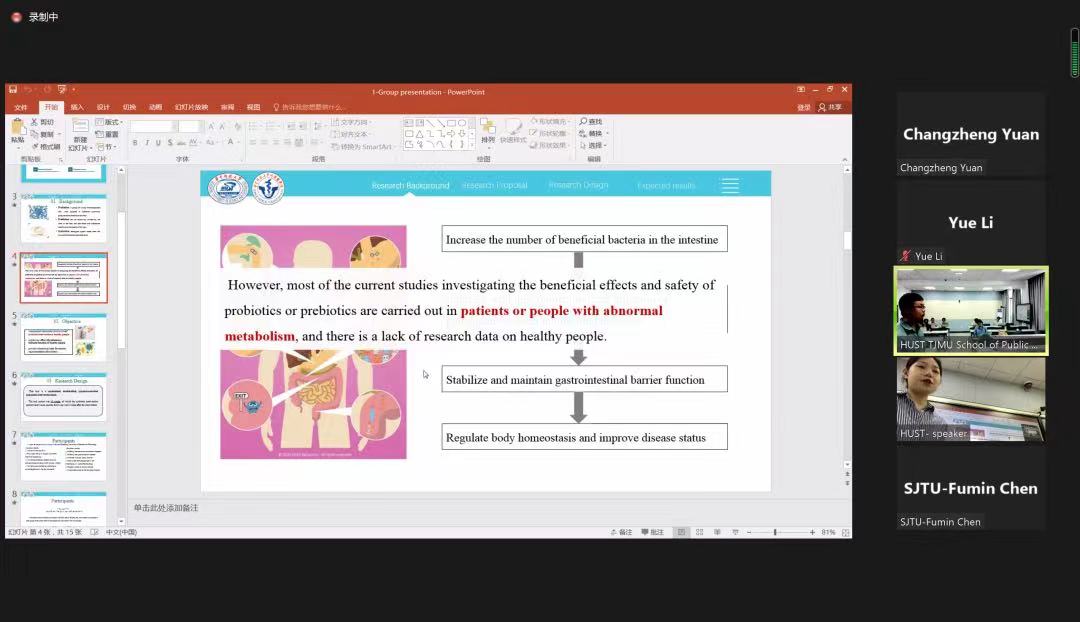
Group 2 Association of Vitamin D with Mortality Risk among Individuals with Diabetes: a Prospective Study
China is the country with the most diabetes in the world. In the past 40 years, the prevalence of diabetes in China has risen rapidly. In 2018, the prevalence of diabetes in China was 12.8 %. Vitamin D, as an organic compound necessary for maintaining good health, has gradually become a research hotspot due to its extensive biological effects. This group designed a large prospective cohort study in a Chinese diabetic population to explore the role of dietary sources, supplement-derived vitamin D, and serum vitamin D in reducing the risk of death, and to further focus on its potential mechanisms. To provide more population research evidence for improving the long-term prognosis of Chinese diabetic population.

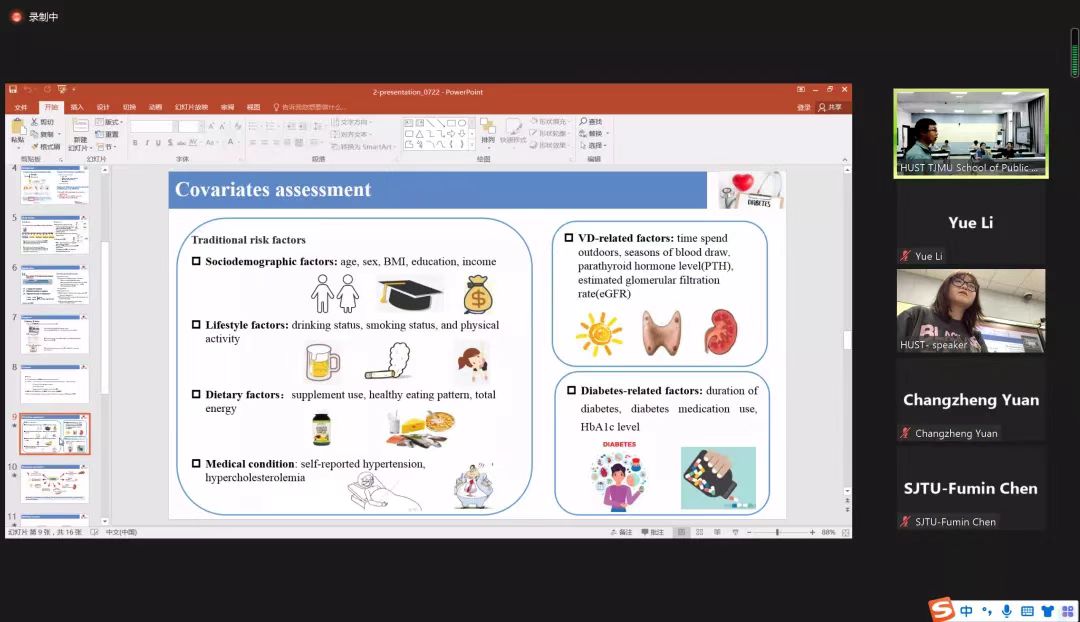
Group 3 Association between Red and Processed Meat Intake and the Risk of Breast Cancer
Previous studies have shown that carcinogens of red meat and processed meat products increase the risk of digestive tract cancer. However, the association between red and processed meat and breast cancer is unclear. In this study, a prospective cohort study was conducted to explore the prospective association between red and processed meat intake and breast cancer risk among female workers in a large garment processing factory. Plan to follow up for 15 years. Among them, the total daily intake of red meat and processed meat < 10g was set as the control group, and the remaining groups were divided into observation group 1, observation group 2, and observation group 3 according to the total intake. The incidence of breast cancer in the four groups of female workers after 15 years was compared.
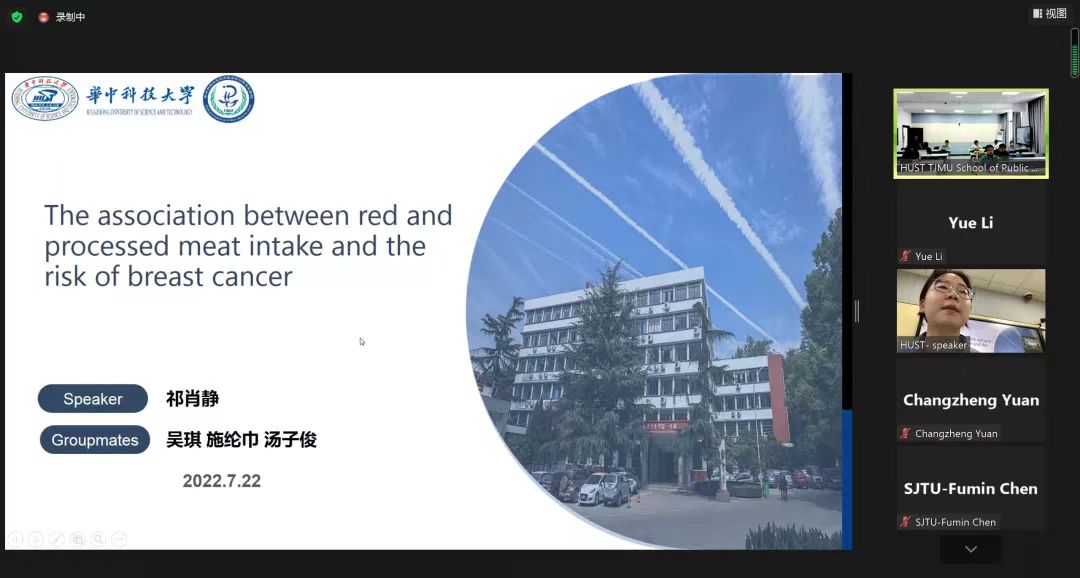
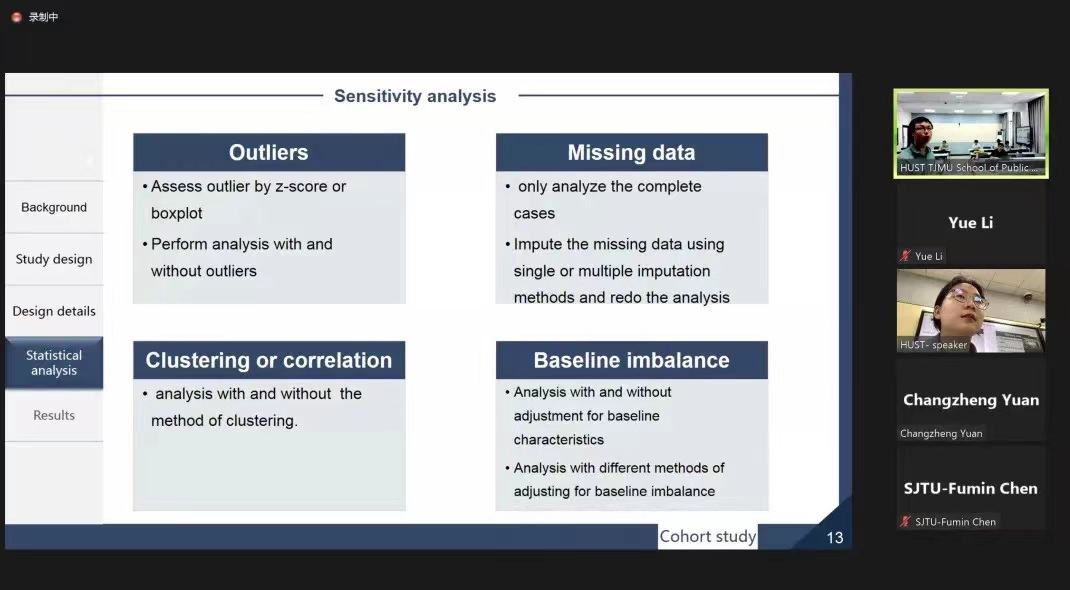
Group 4 Metabolomic Signature of Long Term Coffee Consumption and Risk of Type 2 Diabetes in Women
Coffee can prevent a variety of chronic diseases, especially type 2 diabetes, but its mechanism is still unclear. The design used the diet and metabolomics data of a large female cohort and a nested case-control study design to identify and verify plasma metabolites related to coffee intake in the female study population. To assess the prospective association of coffee intake-related metabolites with the risk of type 2 diabetes and their predictive power for the risk of type 2 diabetes.
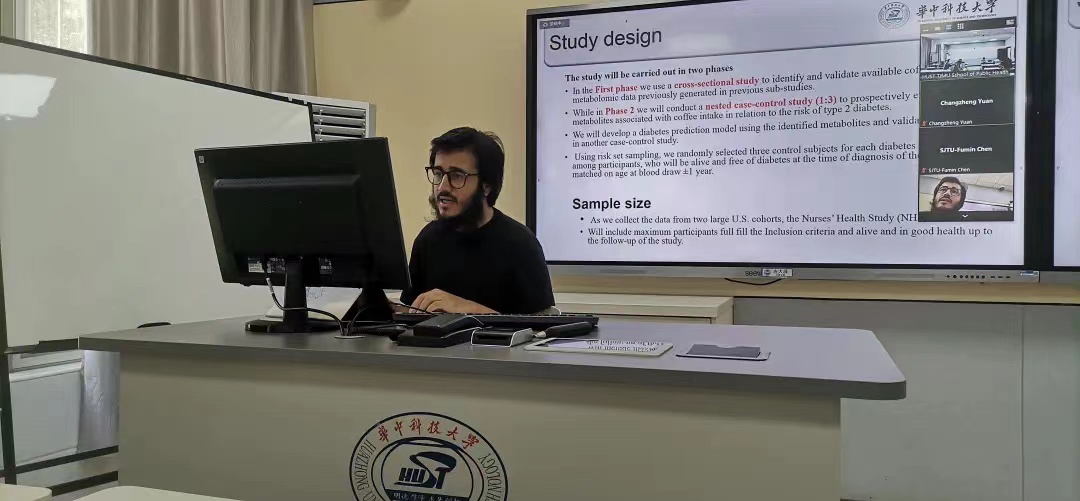
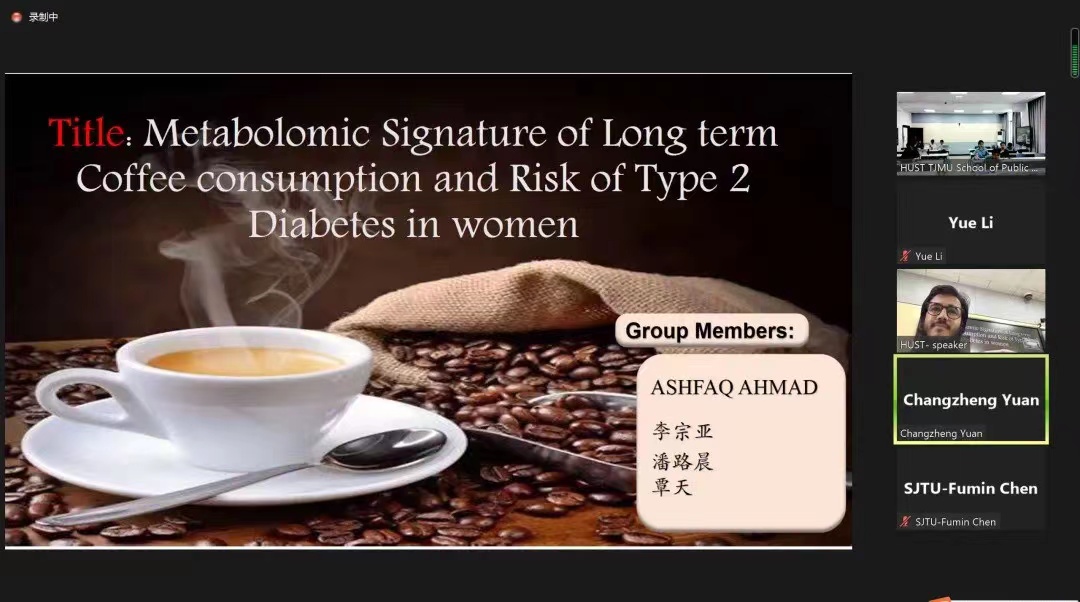
Course Introduction
Nutritional Epidemiology: Methods and Practice
Nutritional epidemiology is the study of dietary assessment, dietary determinants of health-related states or events in specified populations, and the public health application of this research. Research investigating diet-disease relationships has received growing interest in population-based studies worldwide. This course introduces students to the key concepts, methods, and practical skills of nutritional epidemiology, including methods for dietary assessment, dietary validation studies, methods for adjusting for total energy intake, study design, data analysis, and interpretation. Students will learn how to apply these methods and practical skills to interpret the nutritional epidemiology literature and design the studies of their interest.


